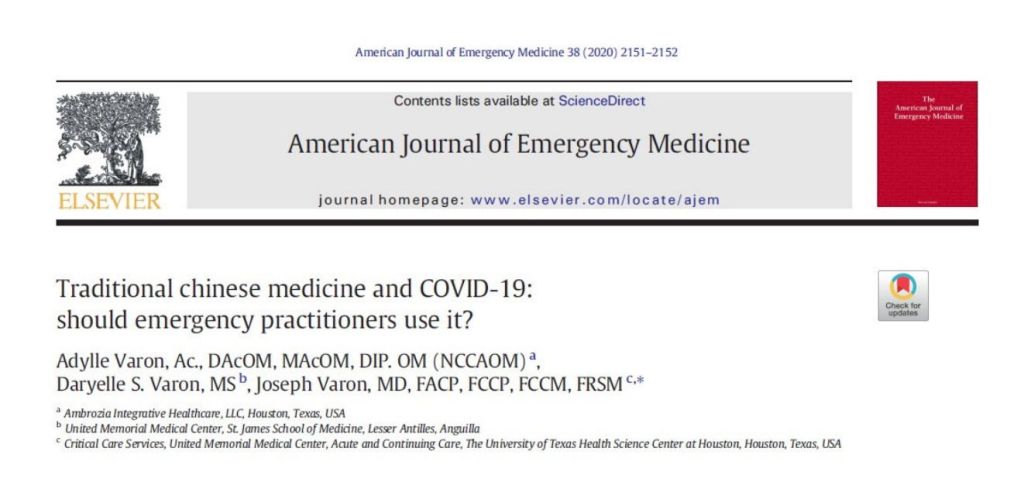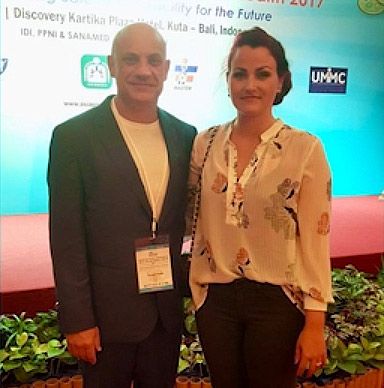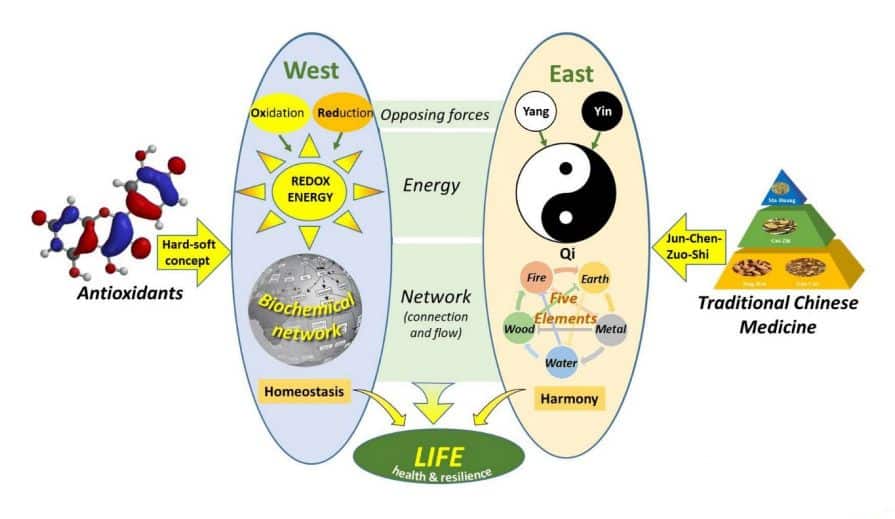Speakers: Dr. Joseph Varon, Dr. Adylle Varon
Can the ancient wisdom of Traditional Chinese Medicine (TCM) really complement the cutting-edge advancements of Western medicine?
Picture a father-daughter duo: Dr. Joseph Varon, a seasoned Western medicine practitioner, and Dr. Adylle Varon, a Doctor of Traditional Chinese Medicine (TCM), working together to bring their patients the best of both worlds.
Though their medical philosophies originate from opposite sides of the planet, they work together to treat patients, and they even publish medical research together.

They’ve seen firsthand how combining the best of both western and eastern medicine can help people heal in dramatic ways. Dr. Joseph Varon even turned to eastern medicine practices like acupuncture after suffering a stroke himself. He wanted his body to “heal itself” and he did not want to rely on painkillers. With the help of alternative medicine and eastern medicine approaches, he was able to recover far beyond expectations.
Dr. Joseph Varon says that he sends at least 25% of his patients to see his daughter Adylle. Together, they have integrated Eastern and Western medicine to great success. Together, they are helping some of the most challenging patients. According to Dr. Joseph Varon:
“These are patients who have seen a minimum of 21 practitioners before they come to our practice. 21 practitioners before they come. That’s the average. So you can just imagine these people have been sent out to psychiatrists…”
Here’s what the two covered in the webinar embedded above:
- What are the Differences Between Eastern and Western medicine?
- Eastern and Western Approaches to Treating Health Conditions
- Can Eastern and Western Medicine be Effectively Combined?
- Case Studies by Dr. Joseph Varon and Dr. Adylle Varon
Be sure to follow both of these fine doctors on social!

Dr. Joseph Varon:
Dr. Adylle Varon:
1. What are the Differences Between Eastern and Western medicine?
Eastern and Western medicine have distinct approaches, each bringing something unique to the table.
Diagnosis
Eastern Medicine: Imagine your doctor assessing your health by looking at your complexion, feeling your pulse, and asking about your overall energy levels. Eastern medicine is all about understanding the body as a whole, focusing on patterns and energy flow.
Western Medicine: On the flip side, Western doctors rely on numbers and data. They measure your temperature, heart rate, and run blood tests to pinpoint what’s wrong. It’s like solving a puzzle with precise pieces.
Treatment
Eastern Medicine: Treatments in Eastern medicine include a mix of herbal medicines, acupuncture, food therapy, and techniques to balance your chi (energy). It’s personalized, aiming to restore harmony in your body.
Western Medicine: Western treatments often involve specific drugs or surgeries to target a particular issue. Think of it as using a laser to zap away the problem.
Discovery
Eastern Medicine: This approach is time-tested, relying on centuries of empirical experience and trials. It’s about what has worked over generations.
Western Medicine: Here, it’s all about the scientific method and rigorous testing. Randomized controlled trials are the gold standard.
2. Eastern and Western Approaches to Treating Health Conditions

Eastern Medicine:
- Focuses on the flow of energy (qi) within the body.
- Uses techniques like acupuncture, herbal medicine, tai chi, and dietary therapy.
- Emphasizes preventive care and holistic treatment.
Western Medicine:
- Centers on evidence-based practices and scientific research.
- Utilizes pharmaceuticals, surgery, and modern medical technology.
- Aims to treat symptoms and cure diseases through targeted interventions.
3. Can Eastern and Western medicine be effectively combined?
Combining Eastern and Western medicine can offer a more comprehensive approach to healthcare. As you can see from the image above (found in Dr. Joseph Varon’s slides), the approach can be very comprehensive indeed!
Though it is not as common as they’d like, the Dr.’s Varon have had incredible success with this approach. Their integrative medicine model harnesses the strengths of both systems to provide better patient outcomes. Here are some ways they can be combined:
- Complementary Treatments
- Holistic Approach
- Patient-Centered Care
- Chronic Conditions
- Mental Health
- Preventive Care
4. Case Studies by Dr. Joseph Varon and Dr. Adylle Varon
In the webinar, the father-daughter duo both deliver a case study where a combination of Western and Eastern medical practices were used to successfully treat two challenging conditions.
In Dr. Joseph Varon’s presentation, he demonstrated how Chinese medicine (including acupuncture) and other alternative treatment methods helped him to fully recover from a stroke he suffered in his 50s.
👉 Download Dr. Joseph Varon’s slides
In Dr. Adylle Varon’s case study, she walks us through her approach to healing a bell’s palsy victim, possibly due to the COVID-19 vaccine. Although Western medicine has a standard practice for conditions like bell’s palsy, the patient was not getting better with conventional medicines. Through the use of Chinese medicine and acupuncture, Adylle was able to restore the patient and remove any trace of the condition entirely.
👉 Download Dr. Adylle Varon’s slides
The Future Integration of Eastern and Western Medicine
Combining Eastern and Western medicine can provide a more holistic, patient-centered approach to healthcare. By integrating the strengths of both systems, practitioners can offer treatments that are both scientifically validated and deeply rooted in tradition. This synergy can lead to better health outcomes and improved patient satisfaction, demonstrating that these seemingly opposing practices can indeed work harmoniously together.
Interested in learning more about how integrative medicine can benefit you? Follow FLCCC for more!
- Sign Up for Our Newsletter
- Join The FLCCC Forums
- Sign Up for The FLCCC Weekly Webinar
- Explore Our Provider Database


